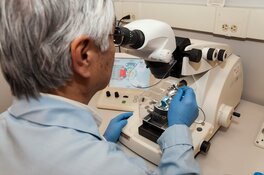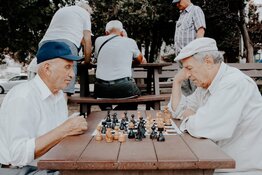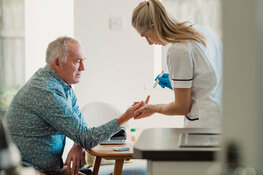Sernova Corp.'s (SVA:TSX.V; SEOVF:OTCMKTS; XETRA:PSH) new Phase 1/2 study data showed its Cell Pouch has a "good efficacy and safety profile," reported Ventum Capital Markets analyst Stefan Quenneville in a Sept. 12 research note. Interim trial results were presented at the recent 2024 EASD (European Association for the Study of Diabetes) Annual Meeting.
"We view the company's update as encouraging," Quenneville wrote.
Offering 733% upside
The analyst maintained his Buy rating on the regenerative medicine firm but lowered his target price to CA$2.50 per share from CA$3 for two reasons, he wrote. One is dilution; Sernova's recent equity raise was more dilutive than Ventum expected. The other is the likely delay of commercialization for about six weeks to one year because the life sciences firm now plans to add a third cohort to the present study.
Given Sernova's current price of about CA$0.30 per share, the target implies a 733% return on investment.
Efficacy, safety demonstrated
In this Phase 1/2 trial, Sernova's Cell Pouch, containing human donor islets, is being evaluated in patients with insulin-dependent type 1 diabetes. Cohort A patients were implanted with an eight-chamber Cell Pouch, and Cohort B patients received a larger, 10-chamber Cell Pouch. Both cohorts were treated with concurrent immunosuppression as well.
Interim data show all six patients in Cohort A achieved and sustained insulin independence. In the first patient the device remained implanted for five years, and for four of them the patient had insulin independence with blood sugar levels in the nondiabetic range.
"The Cell Pouch is the most advanced encapsulation device in development," Quenneville wrote.
This patient, however, had to have the Cell Pouch removed due to a nondiabetic medical problem. After its removal, the contents were studied histologically.
The histological data showed healthy, well-vascularized and functioning islets in all eight chambers, representing "a good efficacy and safety profile five years post implantation," Quenneville wrote. "This represents the longest-lasting implanted encapsulation device containing functioning islets without fibrosis."
Problem among Cohort B
Of the Cohort B patients, only one achieved insulin independence. Five experienced engraftment of the transplanted islets due to problems with their immunosuppressive regimens, Quenneville reported.
Because of this, Sernova intends to add and evaluate a third cohort, implanted with the larger pouch and given an "optimized immunosuppressive regimen that it believes will confer an improved efficacy/side effect profile," the analyst described. Enrollment of this third cohort is expected to start around year-end 2024. Thus, commercialization will be pushed back.
With a new CEO
In other news, Jonathan Rigby, previously the executive chairman of Sernova, recently became its chief executive officer via appointment. With 30 years' experience in leadership in the biotech and medtech industries, Rigby has led companies through significant equity capital raises and initial public offerings, for instance.
"Mr. Rigby's skill set and track record give us confidence in the company's ability to develop its best-in-class type 1 diabetes Cell Pouch data and, importantly, raise the capital it requires to continue pursuing its type 1 diabetes program and other key initiatives," wrote Quenneville.
Well-positioned financially
The analyst also reported that Sernova recently closed its nonbrokered private placement, oversubscribed by CA$1.2 million (CA$1.2M) and generating gross proceeds of CA$5.2M.
"The equity raise provides Sernova with a much-needed cash injection and, on about a CA$3M per quarter burn rate, extends the company's cash runway through Q1/25," Quenneville wrote.
| Want to be the first to know about interesting Medical Devices and Regenerative Medicine investment ideas? Sign up to receive the FREE Streetwise Reports' newsletter. | Subscribe |









































